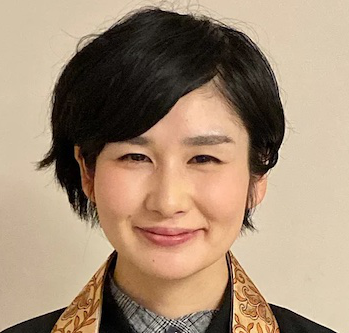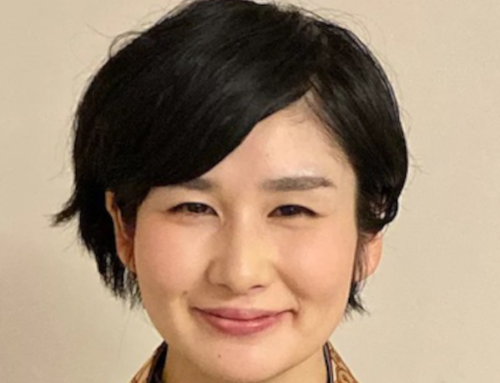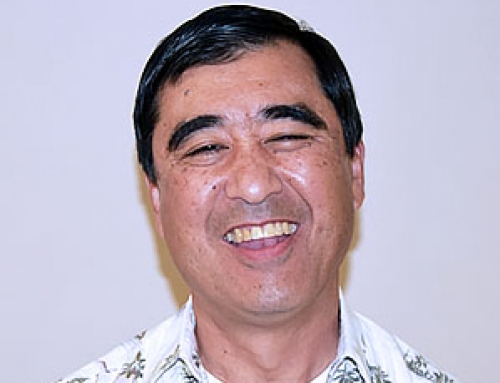June is graduation season in the United States. The Baccalaureate service is scheduled to be held in-person at our Betsuin. This service has been held virtually for the past two years due to the pandemic, but this year we will finally be able to get together for the service and celebrate in front of the Buddha the students’ graduation and their new chapters in their journey through life.
Speaking of graduation, I have an unforgettable memory. When I decided to become a minister 10 years ago, I enrolled in a Buddhist seminary called Chuo Bukkyo Gakuin in Kyoto, Japan where students are allowed to study the basics of Buddhist teachings, history, ritual manners and everything that ministers need to learn. I eventually completed the two-year course and I found that encountering and learning at the Buddhist seminary had a big impact on my life as a minister. On the first day of school, Rev. Shirakawa, who was a principal of the seminary at that time, gave us an impressive message. It is not an 100% accurate accounting of his speech, but as I remember, he mentioned something like this: When we start learning something, we learn it to be smarter. In that case, after we enroll in the school, we will become smarter than now at our graduation. But when you enroll in this Buddhist seminary, I hope all of you will become more “foolish” instead of becoming smarter by the day of your graduation.” Here what he meant is not to recommend that students not studying hard or having parties and becoming lazy and stupid ministers, but the meaning of “foolish” in Buddhism is different and opposite to how it is used in our daily life. I thought he was telling new students a weird message at first and becoming foolish might be easy, but I gradually realized how difficult it was for me. I don’t know if I could confidently say that I became foolish by the graduation.
“Foolishness” here doesn’t mean having no knowledge or being not educated like commonly used in our daily life. We can put it another way with the Sanskrit word avidyā, meaning darkness of our mind and ignorance. We can’t see things as we are in the darkness. In other words, here, “foolishness” is a state in which we cannot see things as they are by seeing them with our self-centered perspectives.
Now that I have gradually accumulated my experiences and studies as a Buddhist minister year by year, I would say that I am gradually able to realize the profound meaning of Rev. Shirakawa’s message better than before.
If you made an effort and strived to become smarter than others or yourself of the past, you might think, “yeah, I am getting smarter,” when actually you are doing the opposite. Instead of becoming smarter and humbler, you are getting prouder and more arrogant. I used to be such a person who tried to be smarter and look smarter than others and did not want to be looked down by others. But, on the other hand, while hearing the Dharma talks given by other friends at the seminary’s classes, I realized that I did not hear their talks in the true meaning, but shamefully enough, I focused more on judging their talks were superior or inferior to me than hearing the Dharma. When we accumulate the experiences and studies, we sometimes misunderstand that we are superior to others and this sense of pride might make us lose a sense of respect for others and bothers us from listening to people sincerely. I would say that pride and arrogance cover our hearts and minds and bother us from hearing and accepting Amida Buddha’s Vows as they are.
Honen Shonin, who is a master of Shinran Shonin and the founder of Jodo Shu denomination of Buddhism, has famous words that Shinran also allegedly appreciated throughout his life even after Honen’s passing: “Persons of Pure Land tradition attain birth in the Pure Land by becoming their foolish selves.” This shows us to be aware of our own foolishness and this awareness of our limitations will lead us to open our hearts and minds and completely rely on Amida Buddha and be born into a Buddha in the Buddha’s land.
Through the Buddha’s wisdom, becoming aware of our foolishness allows us to look back at not ourselves and open our hearts and minds to our surroundings and be mindful of various things that help us to live.
However, even this foolish part of us will not be left behind and will always be included in Buddha’s great compassion to be nurtured as one who will be born into Buddha.
No matter how much we hear the teachings, this important realization that we have achieved continuously slips out of our minds and we tend to live self-centeredly. In realizing Buddhism, there is no graduation. It is continuous.




